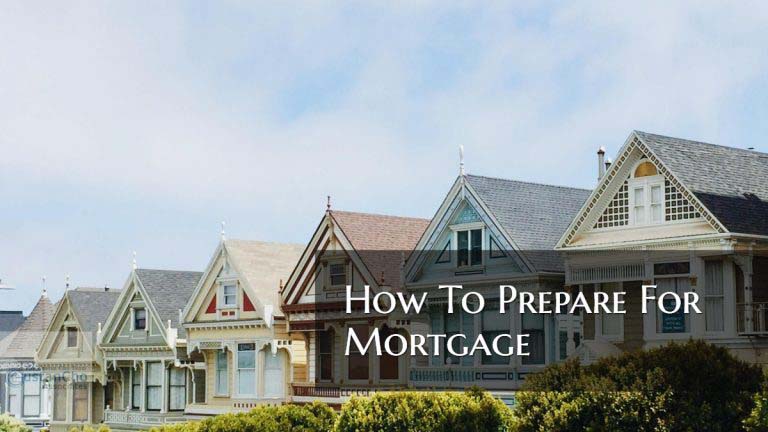This guide covers credit and DTI guidelines on conventional loans vs FHA loans. Credit and DTI guidelines on conventional loans have tighter mortgage lending requirements compared to FHA loan mortgage programs. The debt-to-income ratio (DTI) measures how much your monthly income goes toward debt. It is an important number lenders look at when deciding if you can get a mortgage. The general rule for conventional loans is that your total DTI shouldn’t exceed 43%. Some lenders will bend this rule to 50% if you have strong compensating factors, like a high credit score, a big savings account, or a large down payment.
- To qualify for a 3.5% down payment FHA loan, the mortgage applicant only needs a 580 FICO credit score
- To qualify for a 5% minimum down payment conventional loan, the mortgage loan applicant needs a minimum of a 620 credit score
- First time home buyers can qualify for 3% down payment conventional loans with higher credit scores
- First time home buyers are defined as someone who has not owned a home in the past three years
- Many folks believe that FHA loan programs are just for those with prior bad credit or low incomes
- The above statement is not true
There are many times where a mortgage loan applicant with great credit and income turn cannot qualify for FHA Loans but will qualify for Conventional loans. In the following paragraphs, we will cover credit and DTI guidelines on conventional loans vs FHA loans.
Credit and DTI Guidelines on Conventional Loans vs FHA Loans
Most lenders like to see a credit score of at least 620. For a conventional loan, however, putting down a larger down payment or having a lower DTI can help a borrower with a lower score get approved. You can qualify for better interest rates if your score hits 740 or above. On the other hand, FHA loans can work with scores down to 580 for a 3.5% down payment. If your score is between 500 and 579, you can still qualify with a 10% down payment, but you’ll need to show a good track record of paying your bills.
Conventional Loans vs. FHA Loans: Which One Is Right for You?
Understand the differences in credit and DTI guidelines to find the best mortgage option for your needs.
Debt-to-Income Guidelines
Debt-to-Income, or DTI, is the percentage of your monthly income that goes to paying debts. For conventional loans, a DTI of 43% is the general limit. Still, lenders may allow a higher percentage for borrowers with stronger credit scores and more savings. FHA loans are more forgiving, with a cap of 31% for front-end DTI and a total DTI limit of 43% to 50%, depending on the borrower’s credit. Falling under these DTI caps shows lenders you can manage your monthly payments and other debts.
Credit and DTI Guidelines on Conventional Loans vs FHA Loans: Which Loan Fits You?
The right choice between a conventional loan and an FHA loan depends on your unique financial picture. If you have good credit, a stable income, and can make a reasonable down payment, a conventional loan might save you money on mortgage insurance and interest. However, your credit score is lower, or you have a smaller down payment. In that case, an FHA loan can help you step onto the property ladder with more affordable monthly payments right from the start. John Strange, a senior mortgage loan originator says the following about credit and DTI guidelines on conventional loans vs FHA loans:
Credit score standards vary quite a bit for conventional loans versus government-backed options. On a conventional loan, most lenders want you to score at least 620, but many of them start to prefer 640 or even higher.
Suppose your score hits 740 or above; you’re on track to get the most attractive rates and loan terms. If your score falls between 620 and 680, prepare for higher rates or extra hoops to jump through, such as a bigger down payment or more cash reserves in the bank. Conventional loans lean toward stronger scores because the higher the score, the more a lender trusts your ability to repay. If you’re below 620, getting approved for a conventional loan is tough. However, a low debt-to-income ratio or a hefty down payment can tip the scales in your favor.
Credit and DTI Guidelines on Conventional Loans: Benefits of FHA Loans
FHA loans are a big help for people with lower credit scores. The program allows scores down to 500 if the borrower can put down 10 percent. If someone can put down 3.5 percent, the minimum score goes up to 580. Borrowers with scores between 500 and 579 can still get the loan, but they might need to make a bigger down payment. Julio Munoz, a dually licensed realtor and loan officer at AXEN Realty says the following about credit and DTI guidelines on conventional loans vs FHA loans:
There are a few major differences between conventional loans and FHA loans. A conventional loan needs a minimum credit score of 620. You will see even better loan terms if your score is 740 or higher. In contrast, FHA loans let you borrow even if your score is as low as 500. If you have a score of 580, you only need 3.5% down; if your score is between 500 and 579, you need 10% down.
The FHA also gives a break for past credit troubles. If someone has been bankrupt, they can get an FHA loan just two years after the discharge, while conventional loans usually make you wait four years. This extra wiggle room is why FHA loans are a favorite for people fixing their credit and first-time homebuyers.
Credit and DTI Guidelines on Conventional Loans: Front-End and Back-End Debt-to-Income Ratio
Conventional loans do not have a front-end debt-to-income ratio. The maximum debt-to-income ratio cap on conventional loans is 50%. However most lenders have lender overlays on debt-to-income ratio on conventional loans. Alex Carlucci explains the front-end and back-end debt-to-income ratio many lenders impose on conventional loans as follows:
Conventional loans break down the DTI into two parts. The front-end ratio only counts your housing costs. This includes the mortgage payment, property taxes, and homeowners insurance, and it usually shouldn’t be more than 31% of your income. The back-end ratio includes all monthly debt, like car loans, credit cards, and student loans, and it also needs to stay at or below 43%. If your DTI is above 43%, you’ll usually have to show that you have solid financial reserves to get approved.
FHA loans give borrowers some leeway regarding debt-to-income (DTI) ratios, which is helpful for people carrying larger amounts of debt. The standard rule is that the total DTI should stay below 43%. Still, lenders can sometimes extend that ceiling to 50% or even 57% when borrowers show extra strengths—like a good credit score, a steady job history, or a decent pile of cash reserves. The front-end DTI, which looks only at housing costs, usually has a 31% cap on gross income. The back-end DTI, which includes all monthly obligations, can still surpass 43% if the compensating points are solid. This approach acknowledges that some borrowers can handle a mortgage even at higher DTI levels if they plan their finances carefully.
HUD Guidelines vs FHA Lender Overlays
HUD allows a minimum of 500 credit scores. However, if you have credit scores between 500 and 579, you need a 10% down payment. To be eligible for a 3.5% down payment FHA loan, borrowers need a 580 credit score. Dale Elenteny, a senior loan officer at Gustan Cho Associates says the following about HUD guidelines vs FHA lender overlays on FHA loans.
Regarding debt-to-income ratios, conventional loans prefer a DTI of 43% or less; they may go as high as 50% in special cases. FHA loans are more lenient, allowing a DTI between 43% and 57% if strong compensating factors show you can handle the extra debt.
Down payment amounts are also different. Conventional loans usually ask for between 3% and 20% of the home price; the lower your credit score, the higher the down payment may be. FHA loans stick to 3.5% if your score is 580 or higher; the down payment goes to 10% if it is lower.
Credit and DTI on Conventional Loans vs FHA Loans: Mortgage Insurance
Mortgage insurance rules vary, too. With a conventional loan, you must pay private mortgage insurance if your down payment is less than 20%. The good news is that you can cancel it once you have 20% equity in the home. For FHA loans, the mortgage insurance premiums can last for the life of the loan unless you refinance to pay them off. Dale Elenteny, a senior mortgage loan originator says the following about credit and DTI on conventional loans and mortgage insurance:
Picking the right loan comes down to your money situation. A conventional loan works well if your credit score is at least 620, but it’s best if it’s 740 or higher.
You’ll also need a debt-to-income (DTI) ratio of 43% or less, and a down payment of 5% or more if you want to skip the high-cost mortgage insurance. This type of loan gives you the flexibility to choose different loan lengths, and it’s a good option if you’re buying a second home or an investment property. On the other hand, an FHA loan is a better fit if your credit score is under 620, your DTI is 50% or higher, or you can manage the 3.5% down payment. Thanks to the easier rules, FHA loans are popular with first-time buyers and people with credit issues.
FHA or Conventional Loan? Learn About Credit and DTI Requirements
See how credit score and debt-to-income (DTI) limits differ between FHA and conventional loans.
Overview of the Mortgage Process
Don’t forget about mortgage insurance, loan limits, and property rules. With a conventional loan, you first pay private mortgage insurance (PMI), but you can drop it later. FHA loans have mortgage insurance premiums (MIP) that stick around for the life of the loan. FHA loan limits are usually lower than conventional loans, especially in pricey areas. So, checking your local limits with HUD or Fannie Mae is smart. FHA loans also have tighter home rules, ensuring the property is safe and livable. This can narrow your options compared to a conventional loan.
To max out your chances at either type of loan, start by boosting your credit score. Pay down credit card balances, steer clear of new debts, and always make your payments on time.
Lowering your debt-to-income (DTI) ratio helps, too. You can do this by knocking out smaller debts or earning extra income. Saving up for a bigger down payment can calm worries over a lower credit score or a higher DTI. Touching base with a mortgage lender is a smart next step, letting you dig into your finances and find the loan that fits you best. Ultimately, choosing between a conventional loan and an FHA loan comes down to your credit score, DTI ratio, and homeownership plans. Conventional loans are great for those with solid credit and a low DTI, giving competitive rates and flexible terms. On the other hand, FHA loans welcome those with lower credit scores or higher DTI, making homeownership more within reach. Knowing the rules lets you confidently decide and approach your new front door. Talk to a mortgage lender about your choices for extra help that’s just right for you.
2 To 4 Unit Home Purchases
Cases, where home buyers should benefit from FHA loans and NOT conventional loans, is when they are purchasing a multi-unit home as their primary residence. For example, multi-family homes up to 4 units are considered residential homes. Multi-unit mortgage loan applicants can qualify for residential mortgage loans.
HUD allows 3.5% minimum down payments for multi-family units up to 4 units. Conventional loans, a 5% down payment is required for single-family homes as well on two to four-unit properties. Fannie Mae and Freddie Mac now requires a 5% down payment on two-unit owner occupant homes.
15% down payment is required for 3 to 4 unit owner occupant units on conventional loans. This is a case where a home buyer with excellent credit and income will benefit from FHA loans and NOT conventional loans.
New Credit and DTI Guidelines on Conventional Loans vs FHA Loans
New Credit and DTI Guidelines on Conventional Loans has been increased effective January 2025 by the FHFA. Fannie Mae and Freddie Mac will render an approve/eligible per Automated Underwriting System on debt to income ratios up to 50% DTI
Although minimum credit and DTI guidelines on conventional loans is 620 and 50% DTI, it is very difficult to get an approve/eligible per AUS FINDINGS on condos with such lower credit scores and higher debt to income ratios
Condominiums are considered riskier and loan level pricing adjustments applies. Changes have been implemented in 2019 for new credit and DTI guidelines on conventional loans as well as FHA loans. Here are the basic 2025 FHA mortgage lending guidelines. HUD guidelines on loan limits has increased to $524,225 effective January 1st, 2025. The lower loan limits on FHA loans creates a problem for those who are seeking to purchase a higher-priced home. Homebuyers of higher-priced homes needed to settle with conventional loans versus FHA loans. Those who need to purchase a larger higher-priced home need to go the conventional loan route.
Credit and DTI on Conventional Loans vs FHA Loans: Down Payment Requirement
3.5% down payment with a minimum of 580 FICO credit score:
- 10% down payment is required for those mortgage loan applicant with credit scores between 500 and 579 FICO
- Non-occupant co-borrowers are permitted to be added on the FHA loan for those that cannot qualify with their own income
- Maximum debt to income ratios for those under 620 FICO credit scores is 43% DTI
- Maximum debt to income ratio permitted for those mortgage loan applicants with over a 620 FICO score is 56.9% DTI
Conforming Loans Limits got increased to $766,550 effective January 1st, 2025.
Mortgage Guidelines on Collections
Collections: New collections rules have been implemented by FHA, VA, Fannie Mae, Freddie Mac:
Collections with an outstanding balance of over $2,000:
- 5% of the balance will be used towards the mortgage loan borrower’s debt to income ratios.
- For example, if a borrower has a $2,000 unpaid collection from years ago, 5% of the unpaid $2,000 balance, or $100, will be used towards the calculation of the debt to income ratios even though borrower does not have to pay anything:
- Prior to this new rule, unsatisfied open balances on collection accounts were not calculated in debt to income ratio calculations.
- If borrowers enter into a written payment agreement with the collection agency, then the new monthly payment agreement will be used towards the calculation of the debt to income ratios in lieu of the 5%.
Medical collections are exempt.
Which Loan Works for You? Conventional vs. FHA Credit and DTI Guidelines
We’ll help you understand the key differences in credit and DTI requirements for FHA and conventional loans.
Mortgage Guidelines on Credit Disputes
There are strict mortgage guidelines on credit disputes during mortgage process.
Credit disputes: Credit disputes applies to both FHA loans, USDA Loans, VA Loans, and Conventional loans.
- Borrowers cannot have any credit disputes with open credit balances (certain rules applies) in general
- For example, if someone has a derogatory credit item that is five years old with a $5,000 balance, they cannot try to delete that item by disputing it to the credit bureaus
- Stating and disputing that the derogatory item does not belong to them in hopes of the creditor not responding back and hoping in getting that derogatory credit item removed will not work
- If it is an active pending dispute, mortgage application process will come to an immediate halt
- Before it can proceed again, mortgage borrower needs to retract the credit disputes
- Unfortunately, if borrower retract the credit dispute, credit scores will likely drop
- Medical credit disputes with open credit balances are exempt from this rule
- Non-medical credit disputes with zero balances are exempt from credit dispute guidelines
Any non-medical collections with an aggregate outstanding balance under $1,000 is exempt from credit disputes.
Mortgage Guidelines on Waiting Period After Bankruptcy and Foreclosure
The waiting period after bankruptcy, foreclosure, deed in lieu of foreclosure, short sale:
- 2 year waiting period after the discharge date of Chapter 7 bankruptcy
- 3 year waiting period after the recorded date of foreclosure and/or deed in lieu of foreclosure
3 year waiting period after the short sale date reflected on the sale’s HUD’s settlement statement:
- FHA Back to Work Extenuating Circumstances due to an economic event is no longer in existence
- Back on August 15, 2013, HUD launched the Back To Work Mortgage which waived the two-year waiting period after a bankruptcy and three years after a foreclosure, deed in lieu of foreclosure, short sale
- FHA Back to Work Extenuating Circumstances due to an economic event mortgage program supposedly made the dream of home ownership possible to those with a prior bankruptcy and foreclosure after a one year waiting period versus the traditional longer term
- The Back to Work mortgage program turned out to be a total disaster
- To qualify, the mortgage loan applicant needed to have good credit prior to their loss of job
- The loss of job needed to be the reason why they filed bankruptcy or went through a foreclosure
- The mortgage loan applicant needed to have been unemployed or underemployed for at least six months and had to have had at least a 20% reduction on his or her household income
- After the economic event, the mortgage loan applicant needs to have re-established his or her credit and have not had a single late payment
- Rental verification is required in most cases unless they can explain why they cannot provide rental verification
- A HUD-approved housing counseling certificate is required
The borrower cannot officially apply for the FHA Back to Work mortgage loan until 30 days have elapsed after the completion of the housing counseling certificate.
No Waiting Period After Housing Event
As mentioned earlier, the FHA Back To Work Extenuating Circumstances Due To An Economic Event Loan Program turned out to be a total flop.
- HUD discontinued it back in 2014
- Countless of FHA borrowers participated in the FHA Back To Work Mortgage Program
- But only a fraction of them closed on their loans
- Gustan Cho Associates now offers NON-QM Loans which has no waiting period after foreclosure, deed in lieu of foreclosure, short sale
- However, there is a one year waiting period after Chapter 7 Bankruptcy
- 10% to 20% down payment is required on NON-QM Loans
The amount of down payment depends on borrowers’ credit scores.
FHA Mortgage Insurance Premium
One of the major disadvantages of FHA loans is due to the hefty mortgage insurance premium. HUD charges a one time upfront 1.75% mortgage insurance premium and a lifetime 1.35% annual mortgage insurance premium on the balance of the mortgage loan. The only way to cancel the FHA mortgage insurance premium is to pay off the FHA mortgage loan by refinancing it through a conventional mortgage loan program or selling the house and paying off the FHA loan.
Understand Credit and DTI Guidelines for FHA vs. Conventional Loans
Find out which loan option has the best requirements for your financial situation and get approved.
Credit And DTI Guidelines On Conventional Loans And Score Requirements
Conventional loan programs require a minimum credit score of 620 FICO. However, 620 credit score is considered pretty bad credit with conventional mortgage lenders and those with the 620 credit score will most likely get penalized with high mortgage rates. To get the best possible conventional mortgage rates, a borrower should have credit scores over 740. Unlike FHA loans, where anyone with a credit score of 640 FICO or higher get the same interest rate, conventional loans are different. For the top conventional mortgage rate, your credit scores need to be at 760 FICO or higher. Then there are mortgage rate adjustments every 20 points. Rates get higher at 740, 720, 700, 680, 660, 640, 620. The lower your bracket, the higher the rate.
2025 Credit and DTI Guidelines on Conventional Loans
Here are 2025 Credit And DTI Guidelines on Conventional loans:
- Minimum credit scores are 620 FICO
- Down payment requirements: 3% down payment for first time home buyers: 5% for veteran homebuyers on single-family homes, condos, townhomes.
- 10% down payment for second/vacation homes.
- 5% down payment for 2 unit multi-family homes.
- 25% down payment for 3 to 4 unit multi-family homes
Waiting period after bankruptcy and a housing event:
- Waiting period after a bankruptcy, foreclosure, deed in lieu of foreclosure, a short sale is much tougher for conventional loans
- There is a seven-year waiting period after foreclosure
- Four year waiting period after the recorded date of deed in lieu of foreclosure
- Four year waiting period after a short sale
- Four-year waiting period after Chapter 7 Bankruptcy discharged date if the mortgage was part of Chapter 7 Bankruptcy
- The housing event can happen after the discharged date of Chapter 7 Bankruptcy
The mortgage cannot be re-affirmed.
Cases Where Conventional Loan is The Only Option Due To Credit and DTI Guidelines on Conventional Loans
There are cases where a conventional loan versus an FHA loan is the only option. For homebuyers wanting to purchase a condominium home and the condominium complex is not FHA approved, they can only purchase the subject condominium with a conventional loan. Other cases where you need to go with a conventional loan versus FHA loan is when the buyer wants to purchase a second home and/or investment property. HUD only allows primary owner occupant units to be financed. Second-home financing and investment properties are not allowed under FHA mortgage lending guidelines.
Qualifying For Home Loan With a Lender With No Overlays
Homebuyers or homeowners needing a home mortgage with a direct lender with no overlays can contact The Gustan Cho Team at 800-900-8569 or text us for faster response. Or email us at gcho@gustancho.com. We are available 7 days a week, evenings, weekends, and holidays. Gustan Cho Associates has no lender overlays on government and conventional loans.
This BLOG on credit and DTI guidelines on conventional loans was UPDATED on July 22, 2025
Conventional Loans vs. FHA: Know Your Credit and DTI Limits
Learn which loan program fits your credit and DTI profile for smoother approval and better rates.









